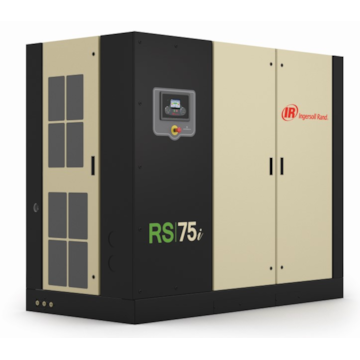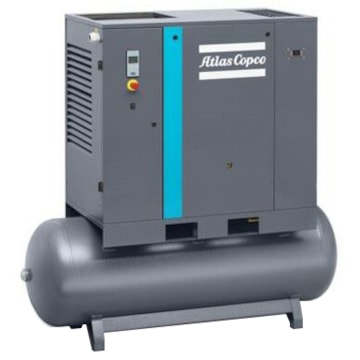Seven Common Uses for Industrial Air Compressors
Air compressors can be found in a variety of applications, but are most often found in industrial applications and sometimes references as commercial air compressors.
Let's explore the seven most common uses for industrial applications to better understand their benefits.
Construction Applications
Compressed air is the primary energy source for pneumatic tools and machinery is favored because it provides a reliable, highly-efficient output that can power a variety of tools often used in construction applications. Most frequently, these will be portable and towable compressors.
In comparison to electric tools, air-powered tools are much lighter, safer, and easier to maintain. All that's needed is a single air compressor to power your tools rather than a separate power source for each. Air-powered tools also have fewer parts that can break, presenting less maintenance costs and making the average replacement easier.
Some other benefits of choosing air-powered tools:
- More power
- More versatile
- Greater torque and rotations per minute (RPM)
- Easily interchangeable
Construction often favors portable or towable air compressors because it’s much more convenient to move them to other job sites and still sufficiently power all their tools as needed. However, heavy-duty towable compressors are frequently used for larger projects like road work and civil engineering because of how robust they are and their ability to meet the demands of the project.
Manufacturing Applications
Air compressors play a huge role in optimizing assembly lines and making quality products. They are especially critical within four aspects of the assembly process: claming, stamping, handling controls, and tool powering.
Air compressors are used to power clamping devices that hold parts in place. This might seem relatively insignificant, but these tools can hold individual components without movement for several consecutive shifts (consider the importance of this in applications like an automotive assembly line).
Steamping referes to how a manufacturer's name or logo is added to a product. This is done by having rotary screw compressors drive molding and painting tools that mark the products in a consistent location at an efficient pace.
Compressors can even be responsible for the movement of the conveyor belt itself. Pneumatic power drives these belts from beginning to end.
Agriculture Applications
As discussed in other blogs, modern air compressors have become an important part of several agricultural processes.
The tools are implemented in everything from sprayers to automated milking systems, making previously laborous processes slightly more efficient. Outside of day-to-day operations, you might also spot air compressors assisting in the winterization of irrigation lines and other critical pieces of equipment to prevent them from being damaged by ice or in freeze-thaw cycles.
HVAC Applications
Naturally, a common use for industrial air compressors rests in the HVAC systems responsible for ventilating and controlling the climate of buildings. In particular, it's responsible for compressing refrigerant as it enters the HVAC system. This process raises the temperature of a system and the resulting gas then enters the condensor, where cooling begins.
While there are a few different types of compressors used in these applications, they are all functionally the same in performance. The key difference is how they accomplish that task.
Energy Applications
Similar to how air compressors transport grain to silos, the energy sector makes frequent use of air compressors in drilling rigs, pipeline operations, and petroleum refineries to create the fossil fuels used in other sectors.
In this case, air compressors are pivotal in helping pump raw materials from the ground in a reliable and efficient manner that meets the strict demands of the energy industry. This makes it possible to obtain a substantial return on investment and ensure their day-to-day operations stay on track.
Pressure Washing Applications
In order to create pressure needed for pressure washing, an air compressor must pump the water and at extremely high velocity. Compressors are the only power method that allows for water pressurization in a way that can effectively remove stains, grease, and more for a thorough clean.
Automotive Applications
Aside from being used in the assembly and manufacturing of vehicles, air compressors are also used in the function of cars. For combustion engines, an air compressor helps heat and cool the engine so it maintains a safe temperature and prevents any damages associated with those extremes.
Auto shops will use rotary screw compressors rather than piston compressors because they are ideal when massive volumes of air are required to service a vehicle. Additionally, compressors are needed to fill your tires with air.
With your newfound understanding of how widespread and versatile air compressors are, we encourage you to browse our selection of compressors best suited for your own needs. Reach out to our team of experienced air compression experts by calling 866.778.6572 or info@compressorworld.com



















